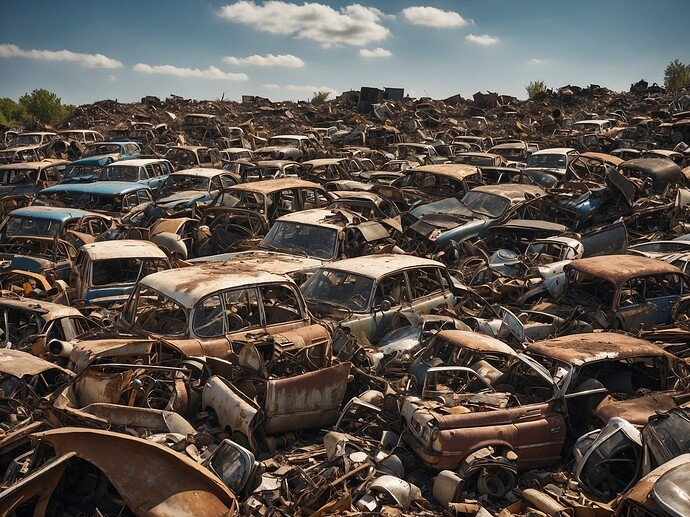Do you think it is possible to achieve a circular economy in the automotive industry? Why or why not? What would this outcome depend on?
Complete circular economy is probably an utopia but there is so much nothing that can be done to reuse, enlarge life cycle or recycle.
This would be feasible only if car makers accept to change their business model and organizations to implemente a real circular economy.
I think it is possible. For this, there should be all stakeholders involved and collaborate on this mission, from car manufacturers to governmental bodies and end users. Furthermore, to succeed I think there should be more work done on standardizing the car parts and easing the dismantling processes.
I think it is possible and believe it needs a paradigm shift.
There are different levels of implementation of circular economy. To achieve full circularity, including the design for recycling, the circularity in the use and ownership of vehicles and the standardisation of production on the global scale, a serious commitment of a number of different stakeholders is necessary.
Is it possible in a market driven economy? Probably only partially.
I think it is possible to adopt limited aspects of a circular economy into the automotive sector, because ultimately full 100% perfect circular economy would need to extend beyond the automotive sector, as the supply chain involved in making cars spans so many industries. If the car industry succeeds in perfect circularity of materials from the moment they enter the sector, but the materials themselves still come from industries that are not sustainable, what would that mean for the concept of achievement like that?
I think some circular economies already exist in the car industry but need to be fine-tuned, meaning they can be more closed and combined to become an entity, as with other sectors. External factors such as policies, laws, and economic interests contribute to closing the loop (or not). Shaping circularity from the inside could help sustain resources and find new ways to “cycle.” The question here is more: are consumers, car producers and marketing actors willing to be part of and act upon a change?
It is possible but I think it would require significant shifts in both policy making and in the manufacturing industry - which has systemically prioritized profit over sustainability over the last century - since the mass production of automobiles began. So it would take a paradigm shift and I have my doubts that this is entirely possible in a liberal market economy.
Yes, I don’t see why not possible.
- These are high value products, where value retention is economically interesting. So there is an incentive to include and improve R strategies for circularity
- Not very acquainted with the sector, but the vehicle manufacturers seem to have the leading role in the value chain. So they have the leverage and the knowledge to enforce new circular models.
- Technology in automotive sector can be enablers for circular models:
3.1 connected vehicles and sharing the resulting data can be used for new business models such as PaaS models that elevates the need for circularity. The vehicle-specific data can be leveraged to assess state of health, to improve lifetime, to improve R-strategy decision making after end of first life
3.2 EVs have less moving components than ICE, which reduces wear and may improve lifetime of the vehicles and/or components.
3.3 AI advances can be used to improve and reduce the cost of end of life decision making, state of health, etc.
3.4 Improved flexibility in manufacturing is an important enabler to carry out the R-strategies (remanufacturing, refurbishment etc.) which have a need for unique treatment (partial disassembly, etc.) - The industry can be driven from the EU, where circularity is an important goal/driver
- Batteries are a good “pilot” for circularity, as they are a relevant component in the automotive sector with a clear high environmental impact.
Test response
Yes circular economy seems possible to me for the automotive industry. What is more difficult to me is a closed loop approach : the technical evolution in that industry is still booming while the product remains often more than 20 years on the market. By then materials have changed, powertrains have changed, energy technology have changed…
But indeed, the materials used are long lasting so they can well be re-used in similar or completely different applications.
Two focus areas should be considered : lean porduction with maximum reuse of waste materials (not equal to recycling !) and optimal recovery of materials from the use and EoL phase
It will be possibile only if all the value chain will be adequatly involved and made aware of the role to be played by each single player. also the legislator should play an impornt role in order to facilitate a more circular approch of the sector.
L’ensemble de la chaine a besoin d’éducation sur le sujet.
C’est en valorisant les initiatives de chacun et en favorisant ceux qui investissent vers cela que le monde automobile changera.
Hi
@lisa @CHARLES-HENRY @ZARROUGA @AaronCab @heinimalm @daniele_perossa6868 @cristina_8969 @maxime_augias8040
Let’s explore the insights from other participants! Feel free to review their answers and select the one that resonates most with you. Then, simply reply to the comment to share your thoughts.
I agree. As an example, is it yet mandatory for all companies to do impact valuation that helps companies to assess and quantify the broader effects of their operations on society and the environment, not just financial metrics?
It’s necessary so it will come. The only question is when ?
Regulations could speed up this transformation by developping incentives and/or taxes
